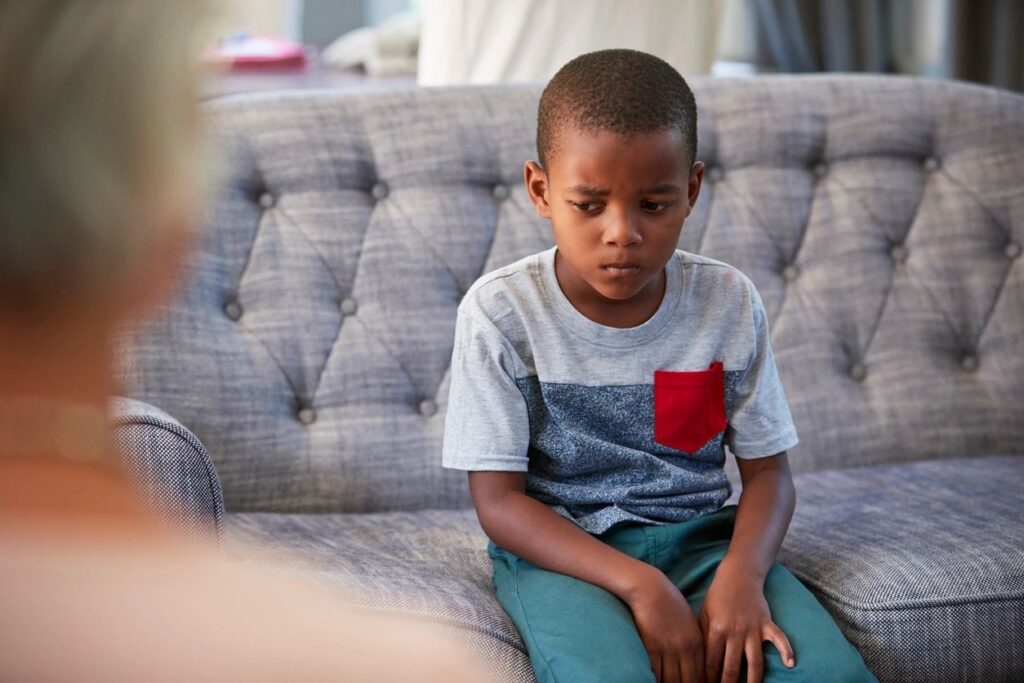Making a Home for Special Needs
Excitement was palpable on the first day of Sunday school this year. A table featured notebooks lovingly assembled by hand with verses for children to memorize. Teachers chatted with parents about new songs on the agenda, new curricula, new dramas to unfold over the year. As my kids and I waited in line at the registration table, I glanced at my six-year-old and prayed he could share some of the day’s joy.
Yet, as I watched, his enthusiasm ceded to anxiety. He stared at a box of name tags as if they were decayed things. A teacher cheered him hello, but he only blurted, “I don’t want a name tag, please.” Then he glimpsed the television in the room. “Please, I don’t want to watch a video!” he suddenly cried. He started to backpedal, dragging his sister and me with him. “I can’t watch a video! Mum, I need to go home!” I placed my hand on his shoulder, but he shrank away, as if my light touch induced pain.
Other parents stared in alarm. To anyone watching, the scene was bizarre. But to my family, this was just another moment—just another day when our brilliant, compassionate, sweet boy, who loves Jesus even more than he does Legos, fought to cope with a world he isn’t wired to handle.

Love the Sojourner
God has special concern for those who wander in strange lands. He first commanded the Israelites to care for sojourners in the wilderness during the exodus (Exodus 22:21; 23:9). In the book of Deuteronomy, Moses reiterated God’s instruction before his people entered the Promised Land: “[God] executes justice for the fatherless and the widow, and loves the sojourner, giving him food and clothing. Love the sojourner, therefore, for you were sojourners in the land of Egypt” (Deuteronomy 10:18–19).
The Hebrew word for sojourner, sometimes translated stranger, denotes anyone who resides in a country apart from his native home. The Bible includes sojourners among three other groups who are especially needy and vulnerable: orphans, the poor, and widows (Leviticus 19:10; Deuteronomy 10:18).
Like those without father or husband, sojourners had little defense against persecution in ancient times. Those who strayed through foreign dwellings found themselves without support, alone in a land where the language and customs abraded their own, where surroundings offered little comfort, and where their unfamiliarity exposed them to attacks by criminals. Home meant safety, identity, and grounding. To be a stranger was to drift, wrenched from your roots.
Sojourners in Our Midst
In our modern era, sojourners still desperately need care. The lilt of a foreign accent should prompt us to pause, to inquire, and to offer hope and help. Christian love guides us to support refugees and to open our homes to those traveling from overseas.
Yet sojourners who share our accents also dwell in our midst. They sit beside us in familiar clothes each week and speak our same language. Yet they live like strangers, because every day they wander through a world that their nervous systems can’t manage. In their struggles with autism, sensory processing disorder, and other neurodevelopmental differences, they experience life as though perpetually uprooted. They aren’t journeying from faraway lands, but they often feel just as scared and alone.
My son is one of these sojourners. He wasn’t misbehaving on that first day of Sunday school. Rather, he was struggling with yet another mundane experience that felt impossible. The sticky adhesive on the name tags made his skin crawl. His jammed brain couldn’t distinguish speech from the din of the crowd. Television threatened flashes and sounds he couldn’t control. Even a mother’s touch—from birth, the very definition of comfort—seemed menacing in that moment. He was just a startle away from a sensory meltdown.
The routine stuff of life can feel strange, even hostile to special-needs kids. Hypervigilance and anxiety are the norm. In their own towns, their own churches, even in their own rooms, they can scarcely let down their guard. They seldom enjoy the ease of belonging. As with those who navigate unknown countries, they seldom feel at home.
Special Love for Special Needs
An hour before panic overtook my son in church, he beamed with the peace of Christ. His love for the Lord and for others in the sanctuary overflowed so briskly that I couldn’t keep up with him. Even when he can’t differentiate between a human voice and a bugle blast, he loves and needs Jesus.
Kids who find daily life a struggle need gospel hope. They need to draw deep, vital nourishment from God’s love. They need to know that even though getting dressed and eating and going to supermarkets is hard, God designed their every spark and curve. They must cleave tight to the truth that while birthday parties are too much and other kids don’t understand their struggles, they belong to Jesus. In Christ, they are home. In him, they are loved.
Parents, as you find yourself becoming an island, progressively isolated from a world that doesn’t understand your kids, know that in Christ, God sees you. He sees you awake in the early morning hours, trying to soothe your child to sleep. He sees you turn down opportunities for fellowship because your little one can’t handle it. He sees you wandering, stumbling, striving to nurture the tender sojourner with whom he’s blessed you.
Know that in the messiness and the weakness and your failings, God draws near (Psalm 34:18; 2 Corinthians 12:9). Know that the cross covers even the worst moments, when the meltdowns rage and you crumple to your knees. Throughout it all, you are fulfilling a calling that God laid down millennia ago, in the wilds of Arabia.

Echoing a Perfect Love
In Leviticus, the Lord tells us the following: “You shall treat the stranger who sojourns with you as the native among you, and you shall love him as yourself, for you were strangers in the land of Egypt” (Leviticus 19:34). Uphold this calling by seeing the kids in your midst who wander as if homeless.
Withhold judgment from the child who bolts from a crowded room. Have empathy for the one who shrinks from a worship song. Their disabilities are invisible to our eyes but complicate their every waking minute. As sojourners in a world that seems too bright, too loud, too harsh—too much—they need our love, as an echo of the perfect love they’ll find in Christ.
Kathryn Butler is a trauma and critical care surgeon turned writer and homeschooling mom. She is author of Between Life and Death: A Gospel-Centered Guide to End-of-Life Medical Care. She lives north of Boston and writes at OceansRiseSite.blog.






